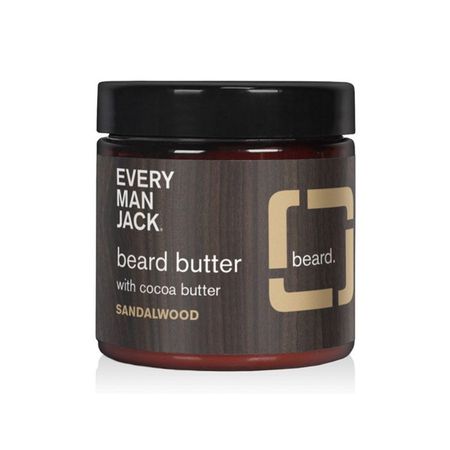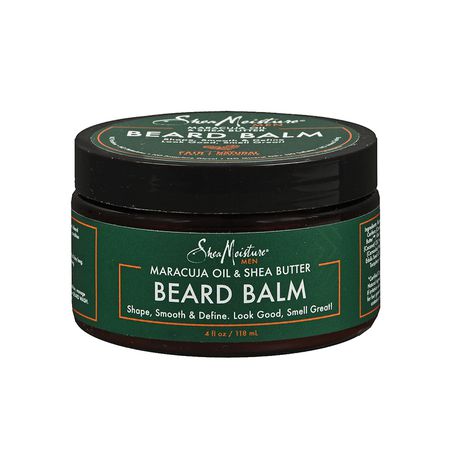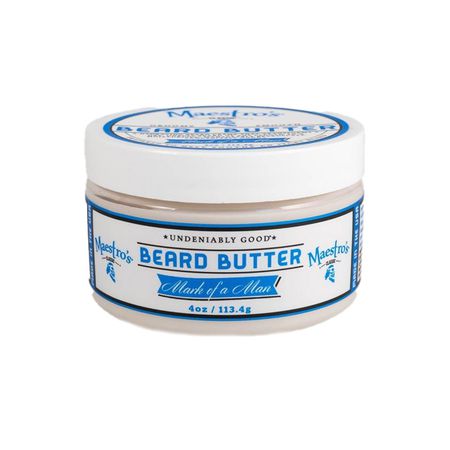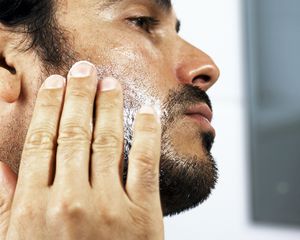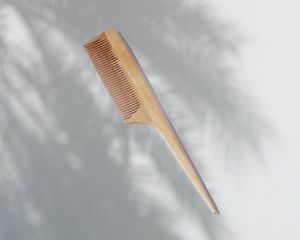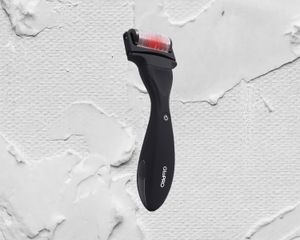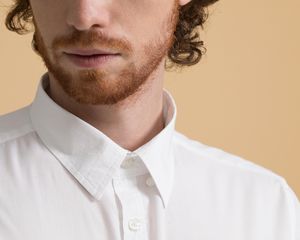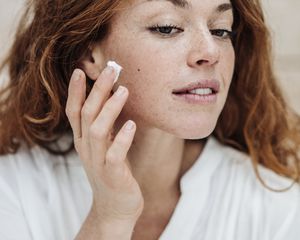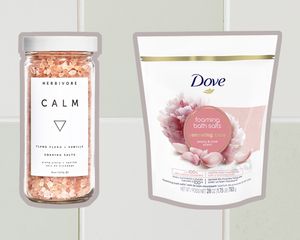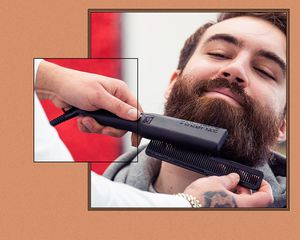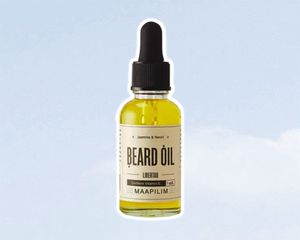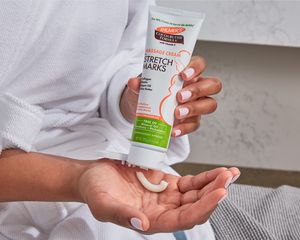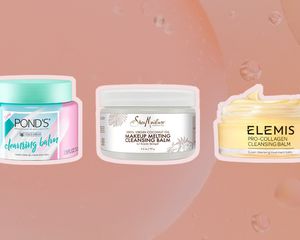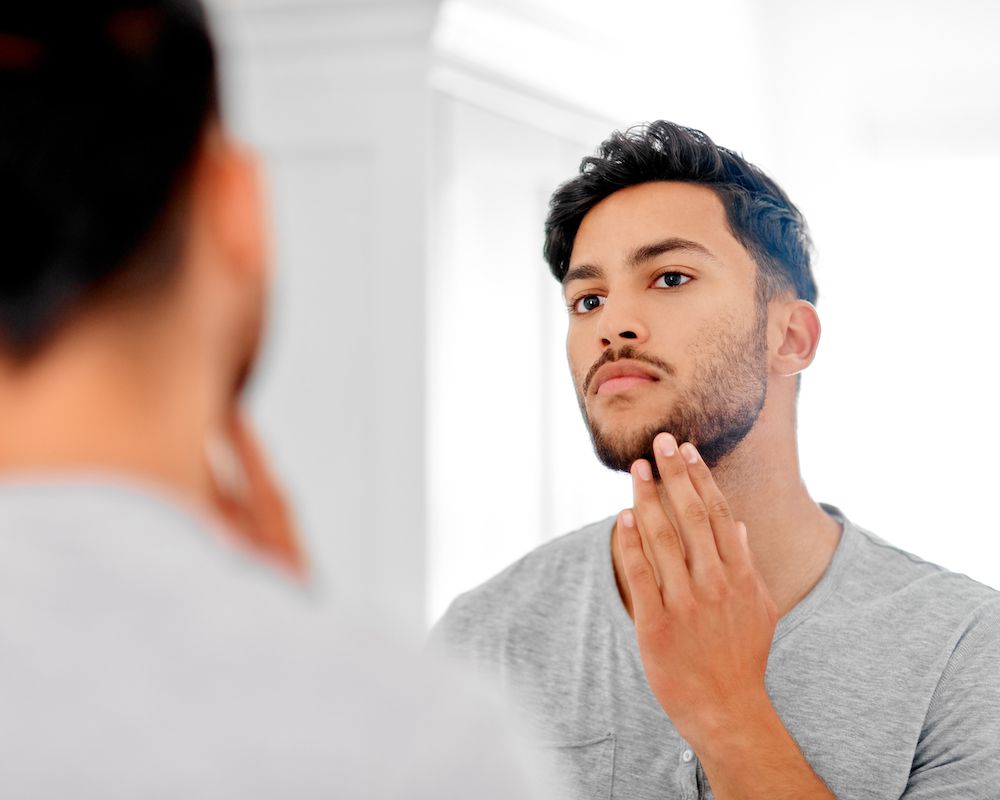
Getty Images
The increasing popularity of sporting a beard has led to many new products geared toward helping to care for beard hair and the skin beneath. In fact, the sheer number of products, as well as the various types, can be enough to confuse even those who have lots of experience with facial haircare, and in fairness, some of products overlap in ingredients as well as in their purported benefits.
A beard-wearing novice might wonder if they need a styling product, lest risk facial hair appearing unruly. Someone with more experience might decide that they need to condition their beard so that they don’t irritate the skin of their partners with their scruff. So, do you really need to use several products to address the potential needs of wearing a beard? Which products make sense for your beard’s style, length, and texture? What ingredients should you look for in a beard product, and will they be compatible with your skin type? Ahead, we consulted experts to try to bring order to beard care chaos by explaining beard butter and how it differs from other standard offerings, such as beard balm and the ubiquitous beard oil. Keep reading to learn all about the benefits of beard butter, as well as some of the best products.
Meet the Expert
- Dr. Hysem Eldik, MD, is a board-certified dermatologist with New York’s Marmur Medical.
- Dr. Daniel Belkin, MD, is a board-certified dermatologist who is fellowship-trained in Mohs micrographic surgery, laser surgery, and cosmetic dermatology.
- Dr. Ryan B. Turner, MD, is a board-certified dermatologist in New York City who practices cosmetic dermatology, general dermatology, surgical dermatology, and laser surgery.
Dr. Hysem Eldik, a dermatologist with New York’s Marmur Medical, explains why beard hair and skin presents special challenges when it comes to looking and feeling good. "It’s important to think of hair like skin, as they both primarily comprise keratin, a protein. However, beard hair is unique because the biology of the hair and hair follicles is different from any other part of the body," he says. "Beard hair has greater density, thickness, stiffness, and a unique shape, which can leave it prone to getting dry. Additionally, surface skin immediately surrounding a hair follicle in the beard area is known to be sensitive relative to other body areas because it is so rich in blood vessels and nerves. Overall, this means that beard hair and the skin underneath is especially sensitive, leading to dryness, irritation, redness and flaking." This seems like ample reason to consider the best ways to manage that complexity with the right products.
What Is Beard Butter?
Beard butter, of course, isn't the same as that delicious product many of us spread on bread or use in various recipes. But sort of how some say that butter makes everything better, beard butter improves the feel of your facial hair and the skin beneath—at least that's what it's supposed to do. Dr. Daniel Belkin from the New York Dermatology Group tells us that while "there is no strict definition of beard butter, the term usually refers to a product that has a softer and more spreadable consistency than a beard wax, balm, or oil." According to Eldik, "beard balm is similar to beard butter but contains thicker ingredients like waxes to give you more shape, styling and hold. The drawback to wax-based products is the feeling that the beard hair has been coated with a greasy product, as opposed to being absorbed."
While certain beard oils may contain some of the same ingredients as beard butter, you'll find differences in both formula and purpose. According to Dr. Ryan Turner, a dermatologist practicing in New York, "beard balm is thicker and primarily used for styling and locking in moisture to just the beard. Beard butter, on the other hand, has a more flexible hold, and its uses are primarily for moisturizing the beard and skin." Turner explains that what separates beard butter from other beard products is the dual role it plays. "Beard butter acts as a moisturizer for the beard, as well as the skin underneath. It can be used both as a moisturizer and as a lightweight styler," he says.
When to Use Beard Butter
Turner recommends beard butter for anyone who wants to deeply condition and soften their hair, or is "looking to achieve a fuller appearance. It can also help with itchiness under the beard growth," he adds, a common complaint among those just starting to grow out a beard. That said, Belkin believes that beard butter is especially helpful to those with longer beards. "The longer the hair grows, the less it is moisturized by sebum on the skin and the more it is exposed to face-washing, mask-wearing, and other friction, which makes it dull, dry, and itchy," he explains. Still, Dr. Eldik adds that "anyone who is looking to maintain a healthy beard and the skin underneath, which is equally important, should consider using beard butter."
But our experts caution that beard butter may not be for everyone. "Anyone with sensitivities or allergies to any ingredients in beard butter (or any product) should avoid use," according to Eldik. Turner advises those having an acne flare-up, or in the process of treating an infection like tinea barbae (beard fungal infection), to avoid the product. "The treatment of these conditions should be prioritized over the use of beard products," he tells us. Belkin explains that beard butters "often have more rich and fatty emollients that coat the hair and lock moisture in. Those who are prone to acne or folliculitis in the beard area should be cautious with these and keep the butter to the mid and ends of hair strands."
What to Look for in a Beard Butter
Belkin tells us that ingredients in beard butters will be "botanical butters, oils, and waxes." According to Turner, beard butter usually has a base of cocoa butter or shea butter (or both). “These are both excellent choices for maintaining moisture and creating a barrier to smooth and condition beard skin. Additional ingredients to look for are jojoba oil, avocado oil, and grape seed oil,” he adds. Eldik suggests trying different products to determine which best suits your beard and skin. "It may take a period of trial and error to find the right product that strikes a balance between having a moisturized, healthy beard and feeling over-greased," he says.
The Best Beard Butter Products
Turner recommends this beard butter, which contains rich ingredients known for their ability to moisturize skin and hair, including shea butter, cocoa butter, and coconut oil. We like the clean scent of sandalwood to enhance the experience of the user and whoever they meet.
Eldik's choice is a balm-butter hybrid for those looking to achieve a "balance of both moisturizing and styling." Not only does this product contain its namesake maracuja oil and shea butter, which are highly emollient, but it also contains vitamin C and smells great.
Byrdie’s suggestion is a water-soluble blend of shea butter, cocoa butter, and fragrance from grapefruit, black pepper, and bergamot. The product is paraben-free, sulfate-free, and according to the brand, it's suitable for combination skin.
The Takeaway
While the world of grooming products grows perhaps faster than your beard, prioritizing beard butter makes good sense for many who are dealing with discomfort or wanting to give their facial hair a softer, more supple look and feel. The moisturizing and emollient properties in the base of most butters should take the edge off whiskers while calming the irritation, and often dryness, that can come with beard growth. As an added bonus, some butters can also help to tame unruly beard hair depending on their thickness and formulation—a win-win since it may eliminate the need to buy yet another product for styling.

